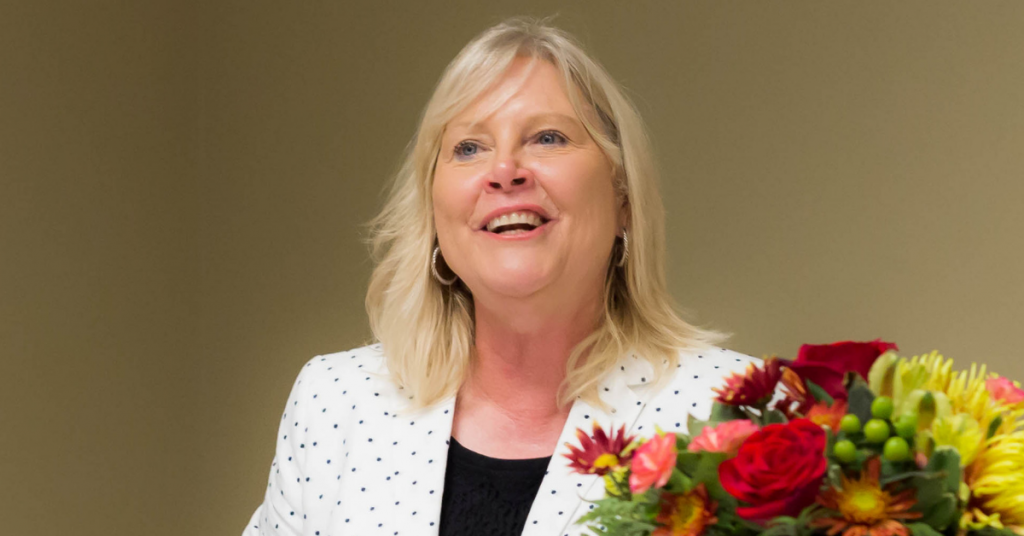Just like many other military spouses, Suzie Schwartz, spouse of Gen. Norton Schwartz, the 19th Chief of Staff of the Air Force, had to leave a career when she married her husband. At the time, she was working in a school system within the special education field.
“We got married and drove to Hurlburt Field that weekend. I left my apartment, my car and my job behind. On Monday morning, he was at work, I didn’t know where that was or even what number to call to find him. I cried at the front window.”
Recently, Suzie addressed spouses at the National Military Spouse Network’s (NMSN) Florida Roadshow. Held at Fort Walton Beach in late September, spouses determined to start, change or continue their career were in attendance. Suzie’s comments left many of her fellow military spouses nodding their heads in agreement. Here’s some of what she said:
Breaking the rules
Upon moving to McChord Air Force Base, Suzie was able to find a job. One Friday night at the Officer’s Club, she let it slip that she was working. The next Monday, the wing commander’s spouse asked her, “Is your job worth risking your husband’s entire career for?” Her husband was told to make her quit. His response: “I will not ask her to do that. She can do everything required of her (as a spouse) and work. But if you don’t like that, you can relieve me of command.”
Shortly after that, the Air Force commissioned a Blue Ribbon panel to discuss the old-fashioned and clearly outdated tradition of including the spouse’s actions and responsibilities on official service records. This was in 1987. A mere 30 years ago.
Proving her worth
When Joining Forces was launched under President Obama, Suzie was overcome with emotion. “Here were people actively seeking to employ military spouses,” Suzie said. “We’ve come a long way.” Previously, spouse support was limited. Spouse volunteers, the USO and the Red Cross were it, and were some of the only options for military families who needed help.
“I worked until he pinned on his third star,” Suzie said, “and at that point I thanked my current employer and (knew) I had to go.” She knew her future would consist of quick, frequent moves, even more so than what had led to this.
One day her old boss at Hilton called her and asked why she wasn’t working. When Suzie responded that she would only be in town for eight more months, his reply was, “I’ll take you as long as I can get you.” Suzie recalled, “I knew I had limited time so I was going to make the best of it.”
Don’t feel guilty about working
“We all seem to feel guilty about working, but we don’t feel guilty about volunteering,” Suzie said. Suzie’s perspective? No one should ever feel guilty for not volunteering; in fact, there is such freedom in saying no. When a spouse feels guilty about not volunteering, they are forgetting the past four generations of spouses who fought for the right of each and every spouse to make their own decision. We each have a choice to volunteer, and we all need to live up to our dreams and potential.
“I may have been a little naive early on,” Suzie admits. “Volunteering came after work. I thought I was going to have this great career. I thought we were way more progressive than we were. I thought he was going to retire in 20 and then it’d be my turn.”
Seeing the difference
There’s no question that Suzie has made an impact on military spouses for generations to come. “I knew back then (at the beginning) that I represented military spouses. I am every military spouse. I would tell employers they should look to us because we are going to give you our all, as long as we are here.”
Suzie has made a difference in so many ways, most of which are still visible today. Suzie asked how many of the spouses in attendance at the Roadshow currently utilized the bridge over Highway 98 on Hurlburt Field. This was one example of how she was able to bring her spouse perspective to the table. “Mothers,” she exclaimed passionately, “with strollers were crossing Highway 98 to get to the gym. I told my husband they needed to build a bridge so we could walk there safely, move the gym to the other side of the highway, or move the housing closer to the bridge. My bridge is still standing,” she concluded.
Another, more poignant and emotional story, came next. When living at Dover Air Force Base, Suzie quickly realized that the reception area was unacceptable for grieving families. “One morning on a flight to Washington, D.C., I had my husband captive on the plane and explained the problem. He was so busy with other things he didn’t even realize the problem. Six months later we had a new facility where the families of our fallen heroes could be honored,” she remembered.
Sometimes, she warned, you may make people upset. “Sometimes my passion came out as disrespect, but I found I was able to get away with a little more as a spouse,” Suzie admitted.
When Suzie sees a need, she fills it. She often allows her passion to overtake the tradition of the military, and she makes sure her voice, a voice that represents all military spouses, is heard.


